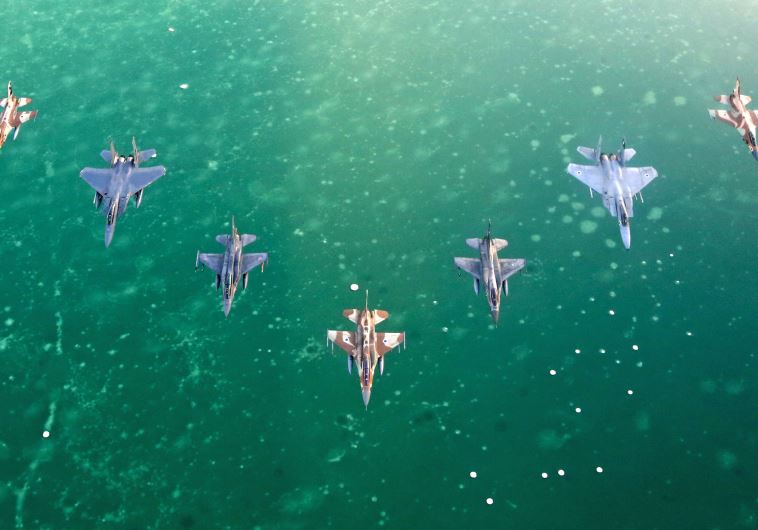A historic moment may be looming on the horizon for Israel.
The Arabs have begun to think the unthinkable: the value of that famous 2,400 year-old Indian saying, “The enemy of my enemy is my friend.”
 IAF fighter jets fly over the Dead Sea(photo credit: IDF SPOKESPERSON'S UNIT)
IAF fighter jets fly over the Dead Sea(photo credit: IDF SPOKESPERSON'S UNIT)